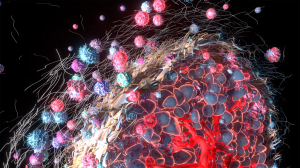por
John R. Fischer, Senior Reporter | October 11, 2023

GE HealthCare has partnered with Sofie Biosciences to develop FAP-based PET imaging radiotracers.
Through an exclusive global licensing agreement, GE HealthCare will develop and commercialize SOFIE Biosciences’ investigational Gallium-68 and Fluorine-18 diagnostic radiopharmaceuticals, which are used in PET imaging and play key roles in theranostic regimens for diagnosing and treating various cancers and other conditions.
Virginia-based SOFIE is currently evaluating the effects of its [68Ga]FAPI-46 (gallium-based) and [18F]FAPI-74 (fluorine-based) radiopharmaceuticals in Phase II clinical trials in the U.S.
With decades of experience in radiopharmaceuticals, GE HealthCare will aid SOFIE in developing them further in its clinical trials and in eventually obtaining regulatory approval and commercializing them in various regions.



Ad Statistics
Times Displayed: 120958
Times Visited: 6963 MIT labs, experts in Multi-Vendor component level repair of: MRI Coils, RF amplifiers, Gradient Amplifiers Contrast Media Injectors. System repairs, sub-assembly repairs, component level repairs, refurbish/calibrate. info@mitlabsusa.com/+1 (305) 470-8013
As part of the agreement, GE HealthCare gains the global rights for [68Ga]FAPI-46 and outside-U.S. rights for [18F]FAPI-74. SOFIE will continue its clinical development and commercialization program for [18F]FAPI-74 in the U.S.
“We intend to collaborate with leading clinical sites using a range of advanced radiopharmaceutical technologies spanning the full spectrum of production from isotope generation, through chemistry synthesis and camera scanning technology,” Dr. Paul Evans, head of global research and development at GE HealthCare’s pharmaceutical diagnostics segment, told HCB News.
Developed at Heidelberg University in Germany, [68Ga]FAPI-46 and [18F]FAPI-74 consist of fibroblast activation protein inhibitors (FAPI) that break down cancer associated fibroblasts (CAFs) in tumor cells that evade immune system protections and create resistance to chemotherapy.
The diagnostic components of these solutions are Gallium-68 and Fluorine-18 labeled diagnostic targeting fibroblast activation proteins (FAP). FAP accelerates the growth and spread of cancerous cells and is highly expressed in CAFs, which are found in most types of tumors, allowing the radiotracers to identify the cancers. The therapeutic components, FAPI-46 and FAPI-74, then break down the CAFs, irradiating nearby cancer cells in the process.
Currently, the Phase II trials for the F18 tracer are focused on gastrointestinal cancers including cholangiocarcinoma, gastric cancer, colorectal cancer, pancreatic ductal adenocarcinoma, and hepatocellular carcinoma. For the G68 tracer, they are focused on pancreatic ductal adenocarcinoma.
Through its FAPI Global Outreach Program, SOFIE has partnered with over 130 academic institutions in 39 countries to study and develop the clinical potential for FAPI. It will collaborate with GE HealthCare on both the development and commercialization processes through a joint steering committee,
“SOFIE has developed a broad network of clinical sites, exploring the potential of FAPI radiopharmaceuticals," said Evans. "With our experience, we can now work together to further advance and maximize the potential of FAP radiopharmaceuticals in clinical practice."

